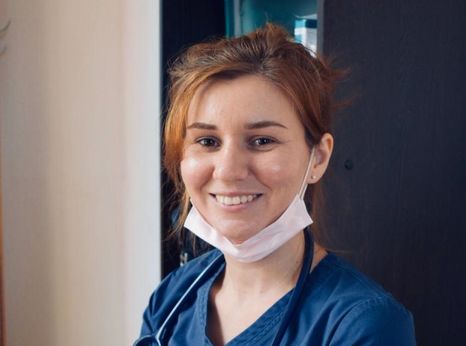Whistleblower doctor facing reprisals

There are ongoing reports of reprisals faced by healthcare workers, civil society activists and human rights defenders in the context of COVID-19 pandemic in Russia. Some activists and whistle-blowers are being persecuted for raising concerns about shortage of necessary equipment, lack of training, low pay or unsafe working conditions. Others – for merely trying to help. On 2 April, Anastasia Vasilieva, leader of the independent trade union Doctors’ Alliance, was detained by police together with her colleagues in Novgorod region when trying to deliver PPE to a local hospital. She was kept in detention overnight and then was charged with “disobeying police orders” and issued RUB 1,600 (USD 21) fine. In March, she was called to the Investigation Committee for questioning under the “fake news” provisions of the Russian law.
Under international human rights law, governments have an obligation to protect the right to freedom of expression, including the right to seek, receive, and impart information and ideas of all kinds. Restrictions on the right to freedom of expression for reasons of public health are permissible, however they must be clearly provided by law, and be necessary and proportionate to protect public health, and non-discriminatory. Authorities must not restrict access and dissemination of information about the health situation. They must ensure people can easily access information through the media and the internet, as well as access official information and documents that are essential for people to be able to protect themselves and comply with the public health measures taken by the government.
States must refrain from any attempts of censorship or intimidation, retaliatory actions and/or disciplinary actions targeting journalists, civil society organizations, activists, citizen reporters, health care workers or anyone else aiming to disseminate information. Imposing undue limitations on the right to freedom of expression and the ability of people to seek information would not only violate their human rights obligations, but also jeopardise the effectiveness of the public health response itself.
When states’ responses to COVID-19 are based on restrictions of information, a lack of transparency and censorship, they risk undermining the rights mentioned above. They also risk making it harder for people to take adequate actions to protect themselves from infection, and for all stakeholders to obtain a realistic picture and coordinate and take effective action to combat the spread of the virus. Health workers are at the frontline of this epidemic, continuing to deliver services despite the personal risks to them and their families. The risks they face include contracting COVID-19 while doing their jobs, long working hours, psychological distress and fatigue.
While there is no official statistic in Russia on the number of medical workers who have been infected, or died, of COVID-19, media publications mention hundreds of infected healthcare staff across the country and an unofficial website lists over 100 medical workers who died fighting the pandemic. Dozens of medical professionals have complained of lack of sufficient or adequate personal protective equipment shortages, inadequate working conditions and pay.